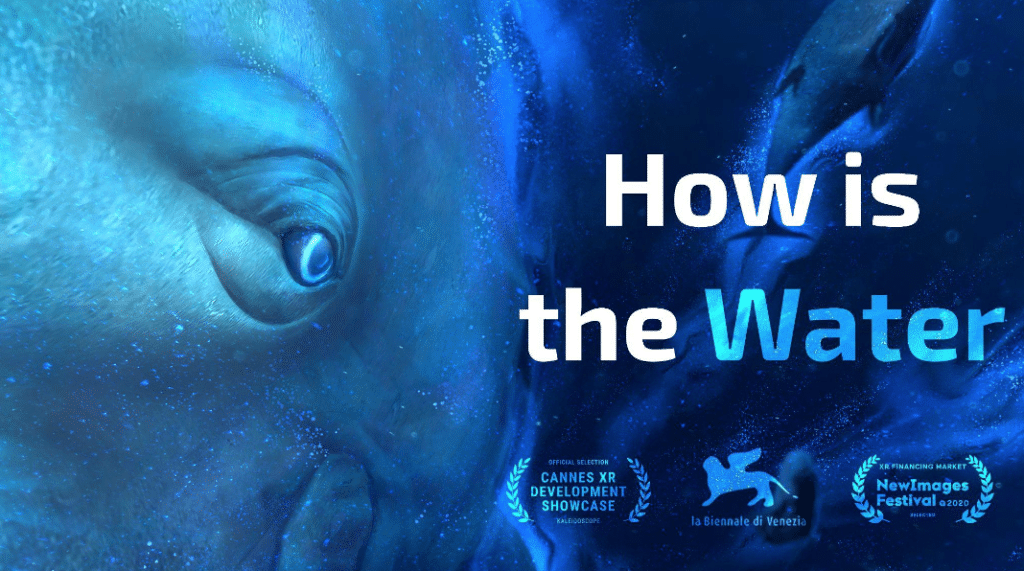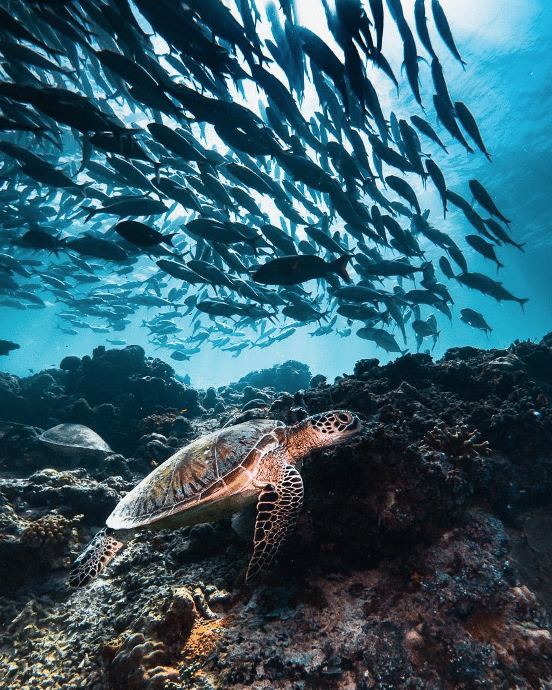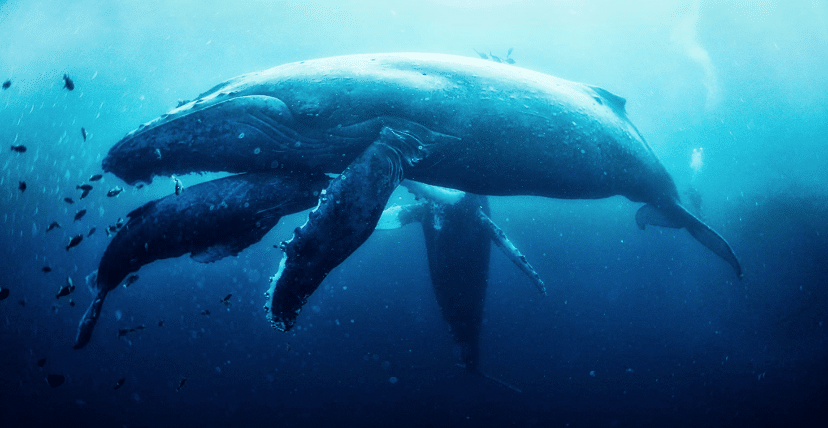
Concept art created for Cyan Planet’s ultimate ocean experience How is the Water by Vladimír Pech, in April 2021.
Cyan Planet is on a mission to make the ocean and its magic accessible with their flagship project How is the Water: an ultimate ocean experience where you explore the underwater world as a dolphin or a shark. Intertwining entertainment, education, and real-world impact, and with the help of 573 backers who pledged €51,563 on Kickstarter, we are able to begin to bring this project to life!
Have you ever experienced a life-changing event where you cannot return to how it was before? That’s exactly what happened to Michal Lovecky and Ninja Mueller, the founders of Cyan Planet. While freediving in Brazil’s Fernando de Noronha National Park, they spotted a turtle under a part of a shipwreck. As they got closer, they realized that it was not hiding there – it was stuck and couldn’t move. Together they gently pushed it out and it swam up to the surface to breathe.
The brief moment shifted the way they saw the world and showed that even little actions can have life and death consequences. They decided to found Cyan Planet to bring the ocean to the people so everybody can live through similar transcendental experiences.

Green sea turtle in Sipidan, Borneo photographed by Cyan Planet Ambassador Marcus De La Haye (@marcusdelayhayephotography)
Many people have not experienced the world beneath the waves, which makes their connection to its conservation distant as well. As famous conservationist David Attenborough says: “no one will protect what they don’t care about, and no one will care about what they have never experienced.” Cyan Planet aims to change this by bringing the ocean’s magic and mystery to everybody through virtual reality and immersive media.
“There is no better medium than virtual reality to immerse somebody in an unknown environment”, says Michal Lovecky. “Research has shown that immersive media can have similar effects on pro-environmental behaviour as real-life experiences. Additionally, it gives us the possibility to enter places that most people cannot visit in reality, like the deep sea, and to build a personal connection with the ocean.”
The Cyan Planet family consists of an international team with backgrounds in marine biology, game engineering, XR technology, and more, surrounded by a vast network of marine conservation organizations and ambassadors. Over the past three years, they have pioneered the use of immersive media technology for marine conservation – combining entertainment, education, and science communication with real-world conservation efforts.
Thanks to partnerships with marine organizations like Whale & Dolphin Conservation, Reef Life Foundation, and Ocean Sounds, in-game actions directly affect the real ocean. For example, when tending to a coral garden within the virtual ocean, a real coral reef structure is being deployed in the ocean to advance coral restoration. This way, even people far away from the ocean can participate in marine conservation and even see the results directly.
At the same time, How is the Water provides a high-fidelity environment for professionals to visualize ocean-related simulations and communicate their work. Thanks to Digital Life 3D, which aims to digitally preserve life on Earth for future generations and scientific purposes, the animals you encounter in this world are real marine species, powered by AI to recreate realistic behaviour. The more How is the Water grows, the more marine species and ecosystems can be included in the virtual ocean, so everybody can explore the wonders of the sea.
“How is the Water serves marine conservation efforts on many levels”, says Ninja Mueller. “Our Kickstarter campaign is already tied to support various organizations in dolphin protection and reef restoration. But we also aim to use How is the Water as an educational tool and will bring it for free to one youth without access to the sea for every copy sold, to spark a passion for the ocean in the next generations.”
“The more support we receive, the more we can preserve the ocean and its life,” says Lovecky. “The initial funding goal on Kickstarter covers the basic features we incorporate in our virtual ocean twin, but every further support will enable more locations, more impact and a wider reach to bring love for the ocean to as many people as possible.”

Humpback whales photographed by Cyan Planet Partner Anuar Patjane (@anuarpatjane), emphasizing the magic and beauty of even the biggest ocean creatures
How is the Water will take you on an adventure across the changing ocean and bring you face to face with the wonders that are in danger of disappearing. For further information about this ultimate ocean experience, visit Cyan Planet’s Kickstarter page or contact them directly via contact@cyanplanet.org. We are looking forward to the next steps which include processing pledges, surveys, rewards and beginning development – as well as taking some much-needed rest and relaxation!


